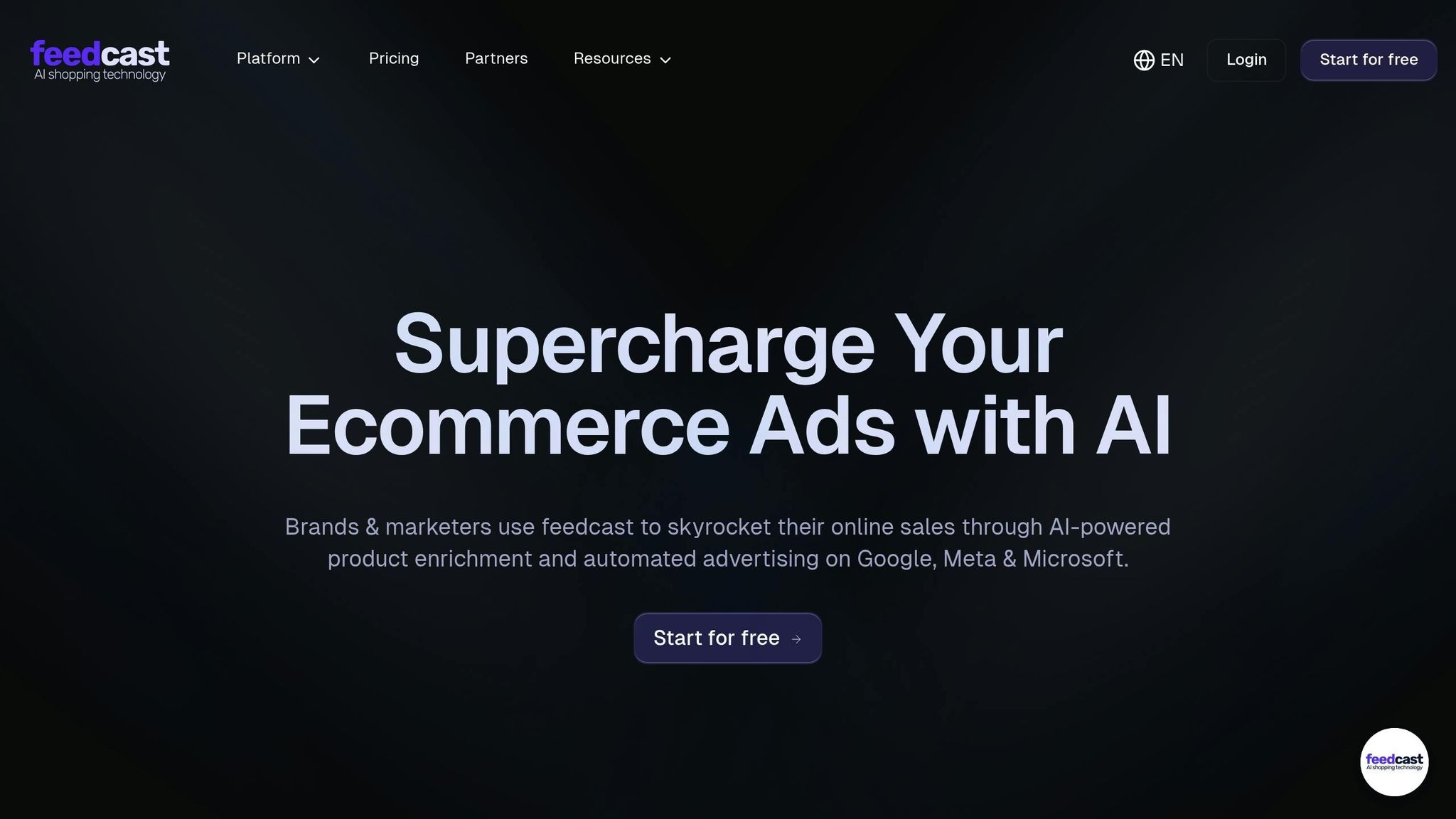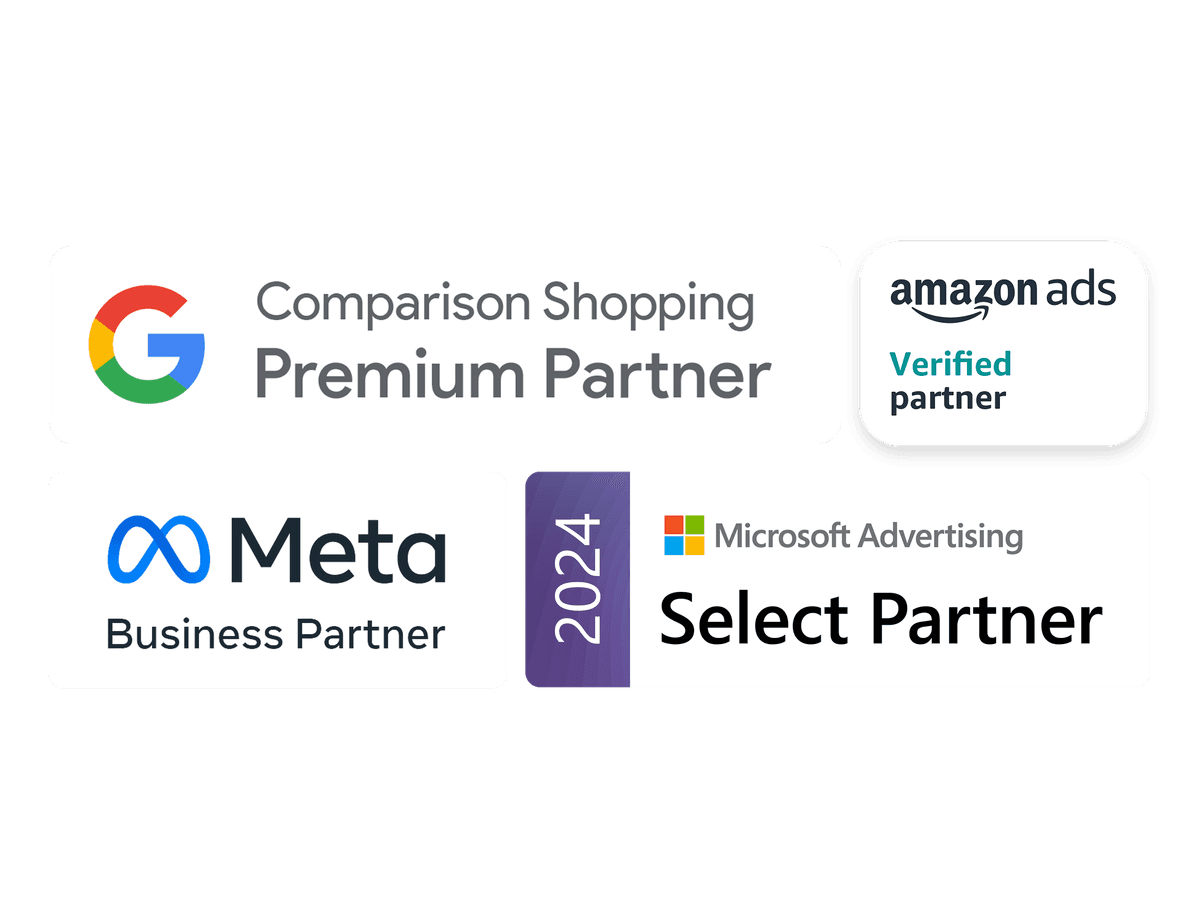Why CSR Matters in Digital Advertising
Explore how integrating Corporate Social Responsibility in digital advertising enhances brand loyalty, meets consumer expectations, and drives profitability.
Corporate Social Responsibility (CSR) is reshaping digital advertising. Consumers now expect brands to align with their values, addressing issues like climate change, inequality, and ethical practices. Businesses integrating CSR see stronger customer loyalty, improved reputations, and a competitive edge. However, failing to act risks losing relevance.
Key Points:
- Consumer Expectations: People research brands’ ethics and demand genuine action, not just claims.
- Regulations: Transparency and data privacy are critical for compliance and trust.
- Business Benefits: CSR-driven campaigns can boost loyalty, trust, and long-term profitability.
- Practical Steps: Eco-friendly ads, honest messaging, and AI tools help align campaigns with CSR goals.
Integrating CSR into your advertising strategy isn’t just ethical - it’s a smart move for long-term success.
CSR : THE NEW ADVERTISING PERFORMANCE
Why CSR Makes Business Sense in Digital Advertising
As the importance of corporate social responsibility (CSR) continues to grow, it's becoming clear that incorporating it into digital advertising isn't just about ethics - it's a smart business move. Companies that weave CSR into their advertising strategies can boost customer loyalty, strengthen market positioning, and improve profitability. Beyond responding to evolving consumer values, CSR also helps businesses navigate regulatory requirements and stand out in a crowded marketplace.
Meeting Consumer Expectations
Today’s consumers are more informed and connected than ever before. They actively seek out brands that align with their values, often researching a company's social and ethical practices before making a purchase decision [1][2]. For many, ethical consumption is no longer optional - it’s a driving force behind their loyalty and trust in a brand [2].
People now expect brands to step up and address major global issues, from climate change to inequality and public health crises [1][2]. This means contributing to social causes, promoting ethical practices, and demonstrating responsibility in every aspect of their business. Companies that rise to these expectations can foster deeper trust and loyalty, which are critical for engaging customers and maintaining a strong reputation [1][3].
However, there’s a flip side. Consumers are quick to spot when a company’s actions don’t match its claims. If they sense “purpose-washing” or “greenwashing,” trust can erode, and the brand’s reputation may take a hit [2]. Beyond just messaging, customers also expect companies to show a genuine commitment to diversity, inclusion, and social equity - not just in their ads, but in their internal practices as well.
Regulatory Requirements and Compliance
As consumer expectations shift, regulatory standards are evolving to keep pace. Advertisers are now under increasing pressure to prioritize data privacy and transparency, ensuring that their practices respect consumer rights. Meeting these ethical data usage standards isn’t just a legal necessity - it’s also key to maintaining trust and effectiveness in a competitive market [2].
Competitive Edge and Brand Differentiation
CSR has become a powerful tool for standing out in the digital advertising space [1]. By showcasing real CSR initiatives, brands can position themselves as empathetic, trustworthy, and socially responsible [1]. This alignment with consumer values - whether it’s sustainability, fairness, or transparency - can set a brand apart and make its messaging more impactful [2].
Over time, the advantages only grow. Brands that consistently demonstrate social responsibility not only build stronger emotional connections with their audience but also see tangible benefits like increased customer lifetime value and more organic word-of-mouth marketing. These efforts create a cycle of trust and loyalty that keeps customers coming back while attracting new ones.
How to Add CSR to Digital Advertising Strategies
Bringing corporate social responsibility (CSR) into your digital advertising strategy not only strengthens your campaigns but also aligns them with values like reducing environmental impact, promoting inclusivity, and embracing smarter technology. These adjustments can help create campaigns that are both effective and ethically conscious.
Creating Eco-Friendly Ad Campaigns
Digital advertising consumes energy across servers, networks, and devices. By making thoughtful adjustments, you can significantly minimize this impact.
Start by optimizing ad formats. Using static images or compressed videos instead of heavier, unoptimized assets reduces bandwidth usage. Smaller file sizes mean less energy is required to deliver ads, which is better for the environment and improves user experience with faster load times.
Precise targeting is another way to cut down on waste. Instead of casting a wide net, focus on reaching the most relevant audience. This reduces unnecessary impressions and ensures resources are used efficiently without compromising campaign effectiveness.
Also, consider the timing and frequency of your ads. Running campaigns during off-peak energy hours and avoiding excessive ad repetition can prevent resource overuse. Smart scheduling and frequency capping not only save energy but also keep your audience from feeling overwhelmed.
Building Ethical Content and Messaging
Your ad content should reflect the same principles as your CSR goals. This means creating diverse, inclusive, and honest messaging that resonates with socially conscious audiences while steering clear of stereotypes or misleading claims.
Make sure your visuals, copy, and videos authentically represent the diversity of your audience. This isn’t about ticking boxes - it’s about building trust and showing a real commitment to inclusion.
Transparency is key. If you’re advertising a sustainable product, explain what makes it sustainable. If you’re highlighting a partnership with a charity, detail how customer purchases contribute. Vague claims like "eco-friendly" or "socially responsible" without specifics can erode trust.
Avoid purpose-washing - don’t make claims your business practices can’t back up. Modern consumers are quick to notice when brands say one thing but do another. Your advertising should reflect your genuine CSR efforts, not an idealized version of your company.
Lastly, prioritize accessibility in your ads. Use readable fonts, provide alt text for images, ensure strong color contrast, and include captions for videos. These practices make your ads more inclusive and often improve performance for all audiences.
Using AI to Improve Sustainability
Once you’ve laid a solid foundation with ethical messaging and efficient practices, artificial intelligence (AI) can take your CSR-driven advertising to the next level by optimizing resource use.
With smart bidding and budget allocation, AI ensures you’re not overspending on underperforming segments. It automatically shifts resources to the best-performing audiences and placements, reducing the number of ads needed to meet your goals.
Automated A/B testing speeds up the process of identifying effective creative and messaging. Instead of running lengthy tests with multiple variations, AI pinpoints what works best, allowing you to focus on proven strategies and avoid wasting resources on underperforming options.
Platforms like Feedcast.ai highlight how AI can simplify multi-channel advertising while supporting sustainability goals. By centralizing campaign management across platforms like Google, Meta, and Microsoft Ads, businesses can cut down on redundant processes. AI-powered tools for managing product feeds and creating ads further enhance efficiency, saving time and energy.
Predictive analytics powered by AI can help you anticipate demand trends, enabling better campaign planning. Instead of rushing to create resource-heavy, reactive campaigns, you can plan ahead with sustainable schedules that align with natural demand cycles.
With automated optimization and real-time performance tracking, your campaigns continuously refine themselves. This reduces the need for manual oversight and often delivers stronger results. By combining ethical practices with AI-driven efficiency, your digital advertising can align with CSR values while achieving exceptional performance.
sbb-itb-0bd1697
Measuring CSR Impact in Digital Advertising
Once you've rolled out your CSR strategies, it's crucial to measure their impact. Tracking the results not only shows if your efforts are making a difference but also helps justify the investment to stakeholders. To do this effectively, you'll need to establish metrics that gauge both environmental outcomes and business performance - two key factors in building consumer trust and driving successful CSR initiatives.
Tracking Environmental Data
Start by evaluating your campaign's carbon footprint. This includes measuring energy use across platforms and formats. For instance, video ads typically have a greater environmental impact than static display ads due to their larger file sizes and higher processing demands.
Data transfer volumes are another critical metric. Reducing file sizes not only speeds up load times and improves user experience but also cuts down on environmental impact. It’s a win-win.
If you're managing your own servers or working with sustainable ad networks, review green hosting metrics. Many platforms now provide carbon impact reports that detail the percentage of renewable energy used to power your campaigns.
Ad frequency also plays a role. Striking the right balance can save energy while maintaining audience engagement. Finally, assess how these environmental efforts shape consumer perceptions and strengthen your brand.
Measuring Social and Brand Metrics
On the social side, monitor mentions and sentiment on platforms like Twitter or Instagram. Conduct brand perception surveys before and after launching CSR-driven campaigns to see how your messaging resonates.
Rather than chasing sheer numbers, focus on the quality of engagement. Track meaningful interactions - like time spent on your content, shares, and the tone of comments - to understand how deeply your audience connects with your CSR message.
You should also measure trust and loyalty indicators, such as customer lifetime value (CLV), to see if your CSR efforts are fostering long-term relationships and enhancing your reputation.
For diversity and inclusion, examine demographic engagement data. Accessibility metrics, like caption usage or alternative text engagement, can also offer insights into how well your content is reaching a broad and inclusive audience.
Balancing Sustainability with Performance Data
Once you've gathered environmental and social metrics, integrate them with traditional performance data. ROI is still important, but it’s equally vital to consider environmental and social returns. This approach gives you a fuller picture of how your CSR initiatives contribute to both sustainability and business goals.
To make this easier, create composite performance scores that combine standard metrics like cost per acquisition (CPA) and conversion rates with sustainability indicators such as carbon efficiency and brand sentiment shifts.
Efficiency ratios can also help. For example, compare campaign results to their environmental impact. Keep in mind that CSR campaigns often require longer attribution windows, so use multi-touch models to capture the entire customer journey.
Finally, prioritize metrics based on your company’s objectives and benchmark your progress against industry standards and past performance. This allows you to clearly communicate results and improvements to stakeholders.
How Feedcast Supports CSR in Digital Advertising

Incorporating Corporate Social Responsibility (CSR) into digital advertising isn't just about good intentions - it requires tools that simplify processes and align with sustainability goals. Feedcast steps in with AI-driven solutions designed to improve efficiency and help track CSR-related objectives. Here's how its core features integrate seamlessly with CSR strategies.
Streamlining Multi-Channel Campaign Management
Feedcast's centralized dashboard brings ad account management under one roof, covering platforms like Google, Facebook, Instagram, and Microsoft Ads. It also syncs product imports directly from your e-commerce platform, cutting down on repetitive manual tasks. By enabling businesses to update product data once and distribute it across all channels automatically, Feedcast saves time and reduces unnecessary resource use. This streamlined approach supports CSR efforts by minimizing operational waste.
Enhancing Product Data and Ad Performance
With AI-powered tools, Feedcast refines product data - think improved titles, descriptions, and other attributes - making ad content more precise and engaging. Its smart targeting features ensure ads reach the right audience, reducing inefficiencies in campaigns. Plus, with unlimited AI credits, businesses can continuously optimize product feeds and ad copy. The result? Better ad performance with fewer wasted resources, a win-win for both business goals and CSR commitments.
Real-Time Reporting for Sustainability Metrics
CSR success relies on having the right data at the right time. Feedcast's unified analytics dashboard consolidates metrics from all connected advertising channels, offering real-time insights and customizable reports. This allows businesses to quickly spot underperforming campaigns and adjust resource allocation as needed. By providing a responsive and data-driven approach, Feedcast not only boosts advertising results but also helps track resource usage and demonstrate CSR progress effectively.
The Future of CSR in Digital Advertising
The world of digital advertising is evolving quickly, with a growing focus on sustainable and socially responsible practices. Companies that integrate Corporate Social Responsibility (CSR) into their strategies are better positioned for long-term success as consumer expectations shift and regulations tighten.
In this changing landscape, trust is becoming a cornerstone for success. Transparent and ethical practices not only build stronger customer loyalty but also deliver measurable advantages for businesses.
Stricter standards around data privacy and environmental reporting are on the horizon. Proactively incorporating CSR into advertising strategies will help businesses stay ahead of compliance requirements and avoid potential disruptions. Those who embrace these changes early will find it easier to adapt to new regulations.
Brands that emphasize sustainability and ethical messaging will stand out in crowded markets. Prioritizing responsible practices not only strengthens a brand's reputation but also appeals to purpose-driven consumers and employees who value meaningful engagement.
To support these shifts, advanced tools are making it easier for businesses to align with CSR demands. Platforms like Feedcast simplify campaign management by providing unified dashboards that allow companies to monitor performance in real time. These tools help businesses adjust their strategies on the fly, ensuring alignment with ethical advertising principles.
FAQs
How can companies align their digital advertising with their CSR commitments and avoid accusations of greenwashing?
To make sure digital advertising aligns with a company's CSR (Corporate Social Responsibility) goals and steers clear of greenwashing, the key lies in honesty and clarity. Brands should share their CSR efforts with clear, verifiable details and steer away from overstating achievements. Setting specific, measurable goals and providing regular updates on progress can highlight accountability.
Incorporating socially conscious elements into campaigns - like inclusive messaging or highlighting sustainability efforts - can also strengthen trust. By staying truthful and consistent, brands can build credibility and nurture lasting consumer loyalty.
How can businesses measure the impact of their CSR efforts in digital advertising?
To gauge how well CSR efforts are working in digital advertising, businesses need to start with clear, measurable goals. From there, tracking both numbers and feedback is key. Surveys on consumer trust, input from stakeholders, and assessments of social impact can offer helpful perspectives. Tools like ESG metrics and social return on investment (SROI) can also shed light on the wider effects of CSR initiatives.
On the digital side, metrics like website traffic, engagement rates, and conversions show how audiences are responding to CSR campaigns. By combining these insights, businesses can get a clearer picture of their performance and make smarter adjustments to their strategies.
How does AI in digital advertising help achieve corporate social responsibility (CSR) goals?
AI is transforming digital advertising by helping businesses align with their CSR goals through greater transparency, ethical practices, and resource-conscious strategies. For instance, AI can evaluate a campaign's environmental footprint, identifying ways to cut carbon emissions or use resources more efficiently.
Beyond that, AI-powered tools promote inclusivity and engagement by tailoring messages to diverse audiences and supporting initiatives that reflect social responsibility. By leveraging AI, brands can craft advertising strategies that not only connect with their audience but also drive positive social and environmental change.
Yohann B.










